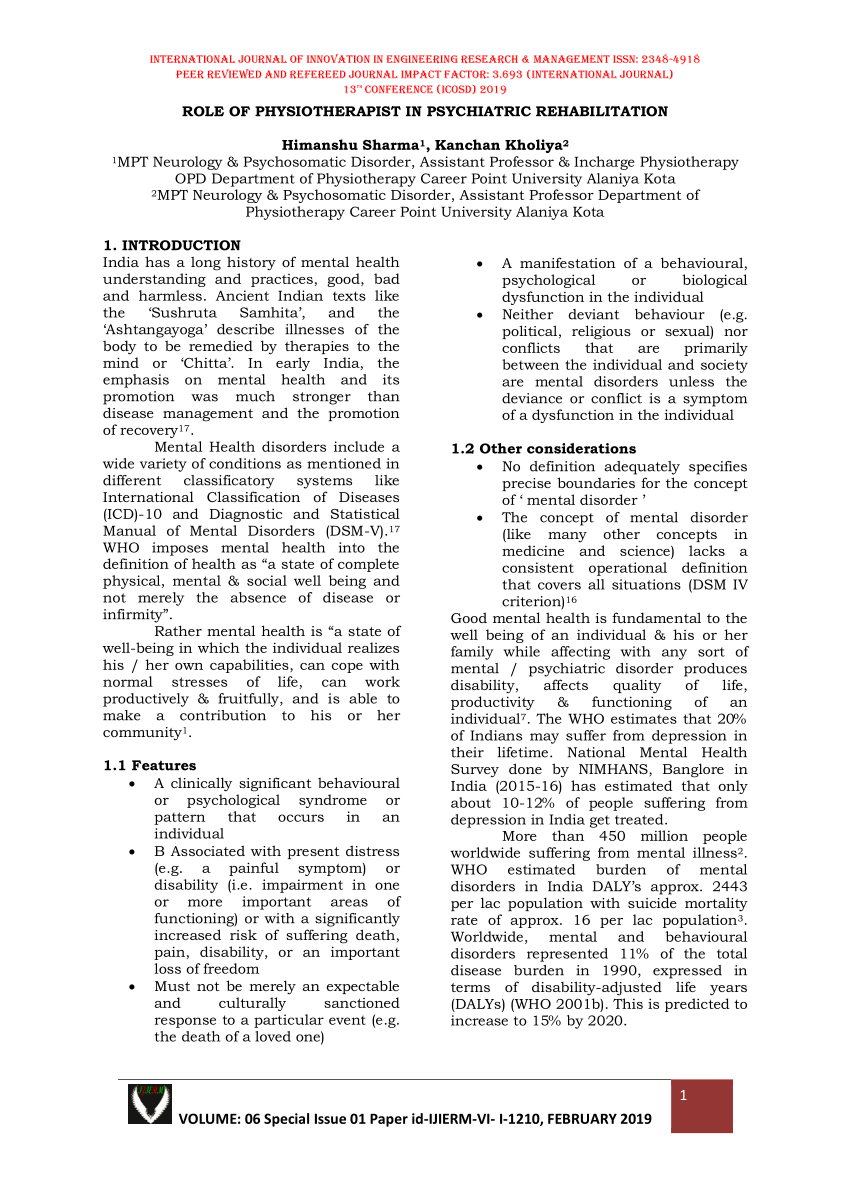Physiotherapists burwood are experts in human movement, function and physical activity. They can help patients recover from major health crises and learn to maximize their body’s potential for performance.
Research shows that regular exercise can help boost self-esteem and mood, while lowering depression and anxiety. But sadly, many people with mental health problems don’t get enough exercise.
Physical Activity
Physical health is often directly linked to mental health. The benefits of being physically active have been well established and include greater cognitive function, decreased risk of anxiety and depression, improved sleep quality and overall physical fitness. Studies show that people who are sedentary tend to have worse mental health compared to those who get adequate amounts of exercise.
A number of hypotheses have been proposed to explain the beneficial effect of exercise on mental health. These may include distraction, increased self-efficacy, and social interaction. Despite these theories, research on this area is limited. Regardless of the reason, it is clear that regular physical activity has positive effects on mental health and should be considered in treatment plans.
Physiotherapy hawthorn (also known as physical therapy) is a healthcare profession that combines in-depth knowledge of rehabilitation sciences, anatomy, kinesiology and physiology with highly specialized hands-on clinical skills to assess, treat and manage pain, injury and illness. Physiotherapists use manual techniques, therapeutic exercise, heat, cold, light, water, massage and other modalities to help clients reach their health care goals.
Physiotherapy services can be accessed by individuals of all ages, at any stage of their lives. They can be referred by their physician or other healthcare professionals. Whether experiencing a sudden injury or managing a long-term medical condition, the skilled and experienced team at Propel Physiotherapy can provide an effective assessment and customized treatment to help you achieve your health care goals.

Stress Management
Stress and mental health are closely linked, and long-term chronic stress can lead to a host of problems including sleeplessness, migraine headaches, weight gain and irritability. In addition to helping people find ways to relieve stress, physiotherapists can help them learn to recognize the triggers that cause their symptoms so they can avoid them and create more balance in their lives.
Stress is your body’s natural physiological response to a perceived threat or challenge, but when it goes on too long, you can end up in a cycle of negative thoughts and feelings. These can cause a lot of emotional distress, leading to depression or anxiety. Over time, these negative feelings can even contribute to the development of physical conditions like cardiovascular disease, asthma and rheumatoid arthritis.
Physiotherapy doncaster provides many mood-boosting benefits, including its ability to reduce pain. Pain can significantly impact a person’s mental health and can worsen the symptoms of depression or anxiety. Having a therapist address the root causes of pain can significantly improve your mental state and prevent it from getting worse.
The best way to manage stress is to recognize what triggers it for you, and then experiment with different tools and techniques to help relieve it. It’s also important to realize that what’s stressful for one person may not be as much of a concern for another.
Sleeping Habits
There’s a lot of truth to the old saying “you can’t fight mental health problems with poor sleep.” It is known that poor quality or quantity of sleep can actually worsen symptoms of depression, anxiety, bipolar disorder and more. This is partly because sleep deprivation makes you more vulnerable to a variety of stressors, including social interaction and work performance.
Skimping on sleep to fit in late nights of studying or binge-watching can also exacerbate mental health issues, causing a vicious cycle of negative moods and sleep difficulties. In fact, it’s been shown that people who sleep less than the recommended amount tend to have more symptoms of mental illness such as depression, anxiety and PTSD.
A lack of sleep can also increase your risk of developing mental health conditions in the future, making it important to develop good sleeping habits as early as possible. This includes getting to bed at a reasonable time and sticking to the same schedule every day.
While the relationship between sleep and psychiatric disorders is complex, it’s clear that the two are closely linked and that addressing both can improve overall wellbeing. Often, psychological treatment plans include recommendations to address sleep problems, and improving sleep can help reduce the severity of many mental health conditions. In some cases, better sleep can actually prevent or alleviate the need for medications.
Nutrition
Physiotherapy is a health profession that assesses, diagnoses and treats physical problems with the musculoskeletal system (bones, muscles, ligaments, and tendons) as well as the cardiovascular and respiratory systems. It also focuses on health promotion and disease prevention. Physiotherapists are specially trained and regulated practitioners who take a holistic approach to patient care, involving them in their own treatment and rehabilitation.
It is now increasingly recognised that the diet has a significant impact on mental health. Research in psychodietetics and nutripsychiatry is gaining popularity as a new area of investigation. The dietary choices that patients make have the potential to influence brain function via effects on BDNF production and to reduce the risk of depression, anxiety and stress through modulation of the gut microbiome.
In a case like Robert’s where he has both low appetite and an anxiety disorder, his physiotherapist can work with him to identify the causes of his symptoms and help him develop strategies to manage them in the future, for example, ensuring that his meals are high in protein, fruits, vegetables and healthy fats. This is an important step in his recovery and could have a long-term positive impact on his mental health. School-based physical activity interventions may have small beneficial effects on internalising mental health problems, resilience and self-esteem, while reduction of sedentary behaviour is associated with a negative effect on emotional distress.





